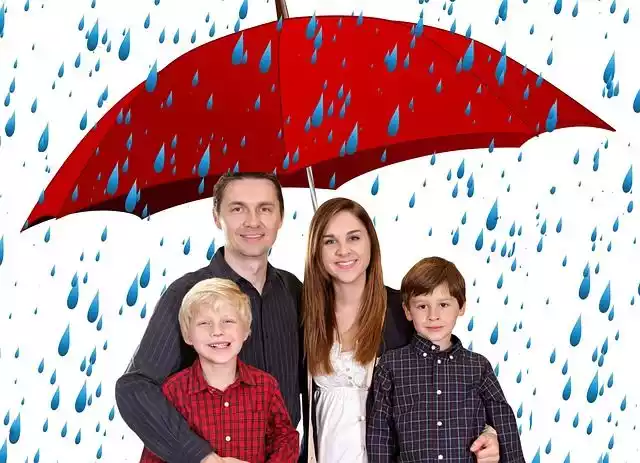Here, we’ll debunk the most common top 10 Insurance myths, empowering you to make informed decisions about protecting your assets and well-being.
Insurance plays a vital role in safeguarding our financial well-being and ensuring a sense of security in the face of unforeseen events. It acts as a protective shield, mitigating the financial impact of accidents, illnesses, property damage, and other life-altering situations.
Despite its significance, insurance is often shrouded in misconceptions and myths that can lead to confusion and hesitation among individuals. These misconceptions can prevent people from making informed decisions about protecting their assets and well-being. In this blog post, we aim to debunk some of the most common insurance myths, providing clarity and empowering you to make well-informed choices for your financial security.
Myth 1: I’m young and healthy, so I don’t need insurance.
Youth and good health are not foolproof shields against life’s uncertainties. Accidents and unexpected illnesses can happen to anyone at any age. By investing in insurance early on, you not only secure lower premiums but also ensure that you are protected against unforeseen circumstances that could otherwise lead to financial strain.
Myth 2: My employer provides me with life insurance, so I don’t need any more.
Fact: Employer-provided life insurance may not be sufficient to meet your needs, especially if you have a family or significant financial obligations. Consider supplementing your employer’s coverage with an individual policy to ensure adequate protection.
Myth 3: Health insurance is too expensive, so I’ll just pay for medical expenses out of pocket.
Fact: While health insurance premiums can be high, the cost of medical care can be astronomical, especially in the event of a serious illness or injury. Health insurance helps spread out these costs over time, preventing you from being burdened by a single large expense.
Myth 4: Homeowners insurance only covers damage caused by natural disasters.
Fact: Homeowners insurance covers a wide range of perils, including fire, theft, vandalism, and even certain types of weather damage. It also provides liability protection in case someone is injured on your property.
Myth 5: Car insurance is just a legal requirement, so I’ll get the cheapest coverage I can find.
Fact: Car insurance is more than just a legal obligation; it’s essential for protecting your financial well-being in the event of an accident. While minimum coverage may meet legal requirements, it may not provide sufficient protection in case of significant damages or injuries.
Myth 6: Insurance is Only for the Wealthy.
Contrary to popular belief, insurance is not exclusive to the wealthy. In fact, insurance serves as a crucial financial safety net for individuals across all income levels. Whether you’re a young professional starting your career or a seasoned retiree, having the right insurance coverage can protect your assets and provide peace of mind in times of uncertainty.
Myth 7: All Insurance Policies Are the Same.
Each insurance policy is unique, tailored to specific needs and circumstances. Whether it’s life, health, auto, or home insurance, policies differ in coverage, terms, and conditions. It’s essential to carefully review and compare policies to find the one that best suits your individual requirements.
Myth 8: Life Insurance Is Only Necessary for Those with Dependents.
While life insurance is commonly associated with providing for dependents, it serves a broader purpose. It can also be used to cover outstanding debts, funeral expenses, and estate taxes. Additionally, having life insurance in place can offer financial support to loved ones, ensuring they are not burdened by your financial obligations.
Myth 9: I Have Comprehensive Auto Insurance, I’m Covered for Everything.
Comprehensive auto insurance is indeed a robust coverage option, but it doesn’t cover every possible scenario. It’s crucial to understand the policy’s limitations, such as exclusions for intentional damage, driving under the influence, or using your vehicle for commercial purposes. Regularly review your policy to ensure it aligns with your current needs.
Myth 10: Insurance Is a Wasted Expense if I Never Make a Claim.
Insurance is an investment in your financial security, and peace of mind is an invaluable return. While it’s true that not everyone will need to make a claim, the security provided by insurance is well worth the premiums paid. Think of it as a safety net that ensures you’re prepared for the unexpected.
Empowering Informed Decisions:

Debunking these myths is crucial for ensuring that individuals make informed decisions about their insurance needs. By understanding the true value of insurance and dispelling common misconceptions, we can encourage more people to take the necessary steps to protect themselves and their loved ones.
In addition to debunking myths, it’s important to emphasize the importance of shopping around for insurance quotes and comparing coverage options. Different insurance providers offer varying levels of coverage and pricing, making it essential to find the best fit for your individual needs and budget.
Remember, insurance is an investment in your future, providing peace of mind and financial protection against unforeseen events. By understanding the myths and misconceptions, you can make informed decisions that safeguard your well-being and secure your financial stability.
Additional Tips for Effective Insurance Planning:
- Regularly review your insurance policies to ensure they meet your evolving needs.
- Consult with an insurance advisor to discuss your specific circumstances and coverage options.
- Consider bundling your insurance policies with a single provider to save money.
- Take advantage of discounts and benefits offered by insurance companies.
- Maintain a good credit history, as it can positively impact your insurance premiums.
By following these tips and debunking common insurance myths, you can make informed decisions that protect your financial future and safeguard your well-being. Remember, insurance is an investment in your peace of mind and financial security.
End Note on Top 10 Insurance Myths
By dispelling these common insurance myths, we hope to empower you to make informed decisions about your insurance coverage. Remember, insurance is a vital tool for safeguarding your financial well-being, and understanding the facts is the first step toward making the right choices for your future. If you have any questions or concerns about your insurance coverage, don’t hesitate to consult with a qualified insurance professional.
FAQs – Related to Top 10 Insurance Myths
What is Insurance Myth?
Insurance myth is misconceptions about insurance policies that can prevent people from making informed decisions about protecting their assets and well-being. These myths often arise from a lack of understanding of how insurance works or from misinformation spread by others.
Should I believe in insurance myths?
No, you should not believe in insurance myths. Insurance myths are misconceptions about insurance policies that can prevent people from making informed decisions about protecting their assets and well-being. These myths often arise from a lack of understanding of how insurance works or from misinformation spread by others.
How many insurances should I have?”
When it comes to insurance, there is no one-size-fits-all answer to how many policies you should have. The number of insurance policies you need will depend on your individual circumstances, such as your age, health, assets, and financial goals.

